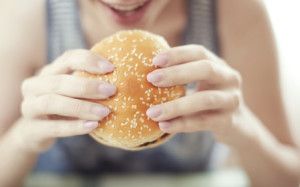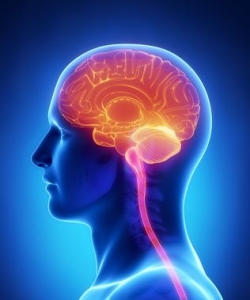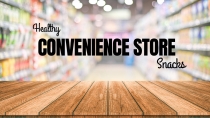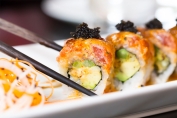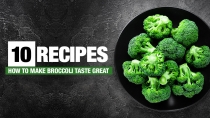
We’ve long heard and believed that our failure or success on diets was a matter of ‘willpower’ or ‘mind over matter.’ Our inability to exercise portion control (try sticking to a single 100-calorie snack pack of Oreos, Ritz or some other junk food) has been chalked up to lack of personal resolve.
A recent study, along with several other studies conducted over the past few years, shows that certain foods can actually have a legitimate biological addictive factor similar to that of drug addiction. There are brain chemicals and hormones at work here that combine to make it nearly impossible for us to ‘just say no.’ As most of us have experienced at some point, body chemistry beats willpower any day!
Let’s have a look at these studies and their implications, as well as what we can do to combat food addiction in our own lives!
FAT MICE AND ‘WITHDRAWAL SYMPTOMS’
In this most recent study, in which mice were allowed to eat unlimited amounts of high-fat food for six weeks and then were returned to their normal leaner diets, the mice experienced withdrawal-like symptoms including intense cravings and anxiety. Chemical changes in the rodents’ brains showed that food can be addictive. There were similarities in the way rodents respond to sugary and fatty foods and to drugs like cocaine. Other studies have shown that sugar-bingeing rats show withdrawal symptoms similar to opiate withdrawal, such as chattering teeth, tremoring forepaws and the shakes. Yet other studies have shown that the digestive systems of rats on a fatty liquid diet began producing endocannabinoids, chemicals similar to those produced by marijuana use.
A growing body of research over the past several years suggests that certain types of food can have strong addictive qualities. Rats that are cyclically deprived of fats or sugar and then given free access to these foods will binge and show intense signs of craving. One study even showed that once they’re addicted, the rats are willing to go to extremes, like crossing a grid that gives them electric zaps, in order to get fatty and sugary foods like Oreos. The anxiety and cravings experienced by the rats were accompanied by changes in the brain as well. The study found changes in dopamine and opioid systems – two neurotransmitters involved in craving and withdrawal.
VISUAL CUES CAN BE ENOUGH TO SPARK CHANGES IN BRAIN CHEMISTRY
In another strike against the idea that all we need is ‘willpower’, several studies have shown that food photographs can activate the brain’s reward centers in a very similar way as images of alcohol does for alcoholics. If you think you exhibit addictive eating behaviors, you may be right – food addiction appears to be a real medical condition. A 2011 study conducted by Yale University showed that women who scored high on a test for addictive eating behaviors had dramatically greater neurological responses to images of food than women who were not addictive eaters.
This indeed gives credence to the idea that ‘out of sight is out of mind.’ Is your family’s house full of sweets even though you’re trying to avoid them? These repeated visual cues could be making it harder for you to resist succumbing to the treats.
PROCESSED FOODS AND ADDICTION
Food addiction does seem to be linked to types of foods we consume. No one abuses skinless chicken breast, lettuce or oranges. It is processed foods with high levels of highly processed fats and sugars that cause addiction. These foods are not natural to the body, and the processed food companies know how to make just the right concoctions to make us crave them. Dr. David Kessler, former FDA commissioner described these foods as ‘hyperpalatable’ foods created with the right combination of salty, sweet and fatty ingredients (and texture) to tantalize our taste buds.
Add to this the fact that sugary, processed foods containing fructose can cause overeating, and we’ve got a situation that anyone looking to maintain a healthy lifestyle should avoid.
So, how do we avoid falling victim to food addiction? The best way is to avoid junk food – like the plague! If you already eat it regularly, you may just need to go through the withdrawal symptoms and get them out of your system. While you’re detoxing, focus on eating healthy snacks that you enjoy as much as possible. Whatever your favorite veggie or fruit is – eat lots of it! If you love cobb salad, enjoy it for lunch daily for a while. Treat it like a real addiction and know that even a little bit of a trigger food could cause a binge. Even if you eat junk food only once in a while, it may be best to steer completely clear. These foods aren’t healthy for us, and if they have similar effects to certain addictive drugs, there’s really no good reason to indulge.
Are you interested in finding more healthy foods to get hooked on? Our Athlean-XX for Women nutrition plan will help you rediscover how enjoyable healthy eating can be. Our plan recommends combining proteins and slow-burning carbohydrates at every meal and snack to help keep you feeling full. In fact, the Athlean-XX for Women nutrition plan is anything but a diet – we actually recommend you eat more – 5 – 6 times per day! This type of diet will help turn your metabolism into a fat burning machine – when combined with our killer 30 minute workouts. Yes, with Athlean-XX for Women, eat more, exercise shorter but harder and weigh less! Join us on Team Athlean to start your lifestyle makeover now!
And finally, if you’d like to stay up to date with the AthleanXXforWomen.com blog, then please like us on Facebook, follow us on Twitter and follow us on Pinterest.
P.S. We are a growing community dedicated to and passionate about realistic fitness and nutrition for REAL women. If you enjoyed this post please feel free to share on Facebook, Twitter and Pinterest. It would be incredibly appreciated!


